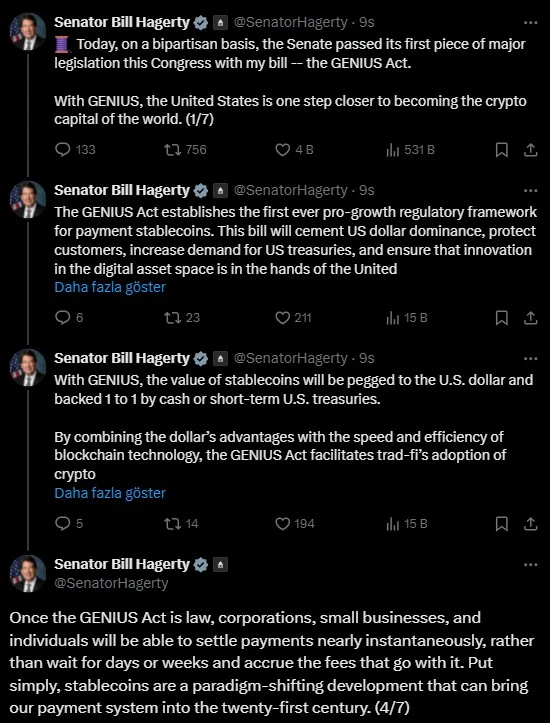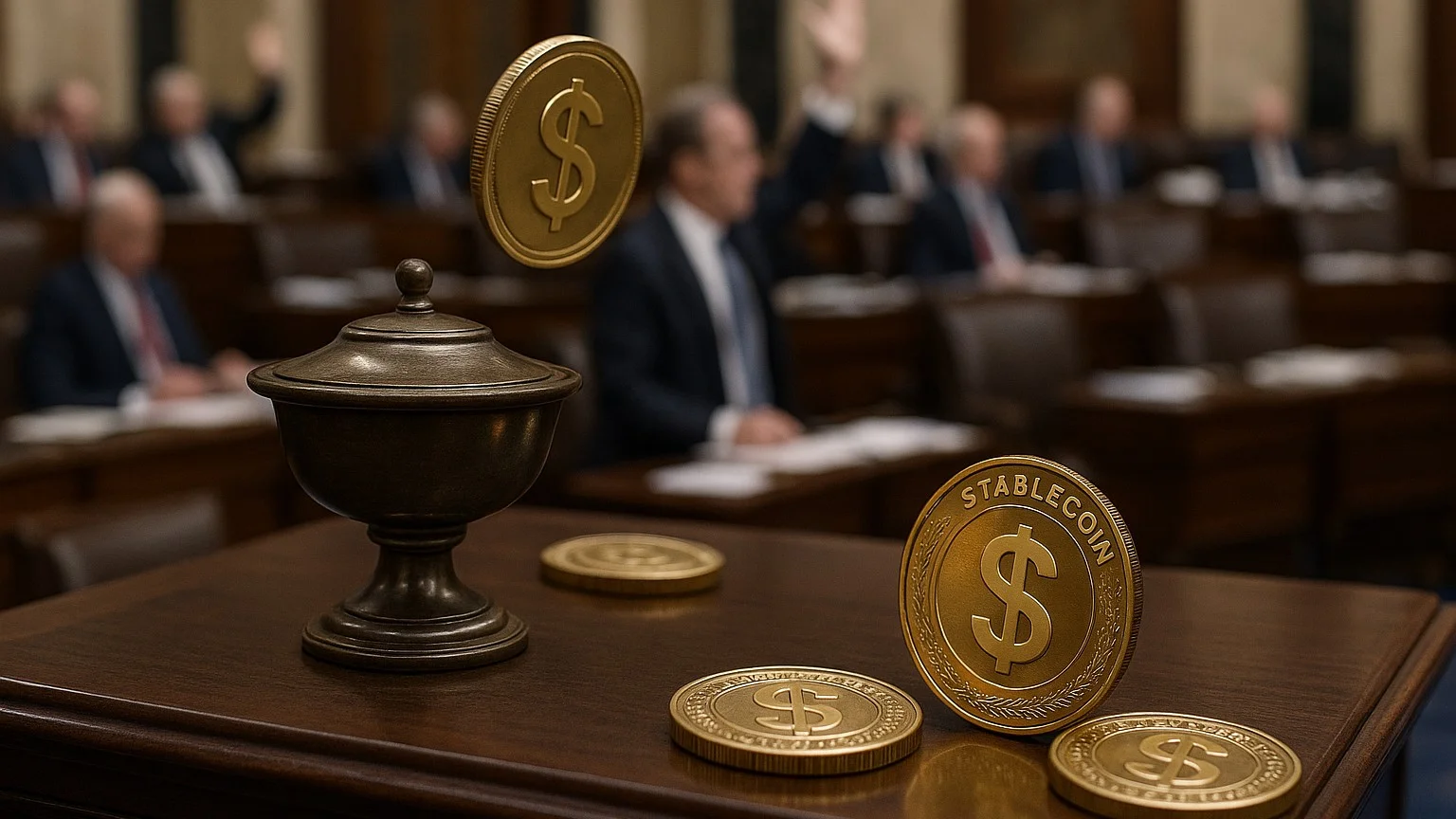A development that is seen as a turning point for the cryptocurrency market has taken place. The U.S. Senate has taken an important step in the cryptocurrency field by passing the GENIUS Act (Guiding and Establishing National Innovation for U.S. Stablecoins) by a vote of 68-30, focusing on stablecoin regulations. The bill is expected to become law by August with the support of the Trump administration.
Stablecoins are now subject to official regulations
The GENIUS Act provides the first comprehensive legal framework for dollar-backed stablecoins in the U.S. The law requires these assets to be fully backed by U.S. dollars or similar highly liquid assets, while making annual audits mandatory for stablecoin companies with a market value of over $50 billion. In addition, restrictions are also placed on algorithmic stablecoins and models that do not have sufficient collateral.
The law, which also takes important steps in terms of financial transparency and investor protection, foresees that stablecoin users will be placed in the position of priority creditors in the event of a company's bankruptcy. In other words, we see that the concept of “super-priority”, which increases the security of investor funds, is being applied in this area for the first time.

Another striking article of the law is aimed at technology giants such as Meta and Amazon. Such large companies will have to meet certain privacy and financial security standards if they want to issue stablecoins or operate in this area. Otherwise, their activities may be restricted. At the same time, the law opens the door to a wider range of “stablecoin issuer” companies such as banks, fintech startups and retail giants, paving the way for new players to enter the market.
Opposition from Democrats
Although the law was passed with bipartisan support, some Democratic senators opposed the bill and requested various changes to be made before the vote. One of the most notable proposals from Democrats was to prevent President Trump and his family from profiting from crypto ventures. However, this proposal was not reflected in the law; the final text only included a regulation prohibiting members of Congress and their families from profiting from such activities. On the other hand, another stablecoin law called the STABLE Act, which aims to provide more transparency, continues to advance on the Congressional agenda.
Trump administration fully supports crypto
The Trump administration is known for its open support for crypto assets. Treasury Secretary Scott Bessent stated that the legislation will increase the global use of dollars by offering stablecoins backed by US bonds. The next stop for the legislation to be enacted is the House of Representatives. The House can either submit its own version or directly vote on the text passed by the Senate. Either way, time is running out. President Trump wants the stablecoin bill to reach his desk before August.
With the stablecoin market expected to reach $3.7 trillion by 2030, the passage of the GENIUS Act in the Senate is a critical milestone.




